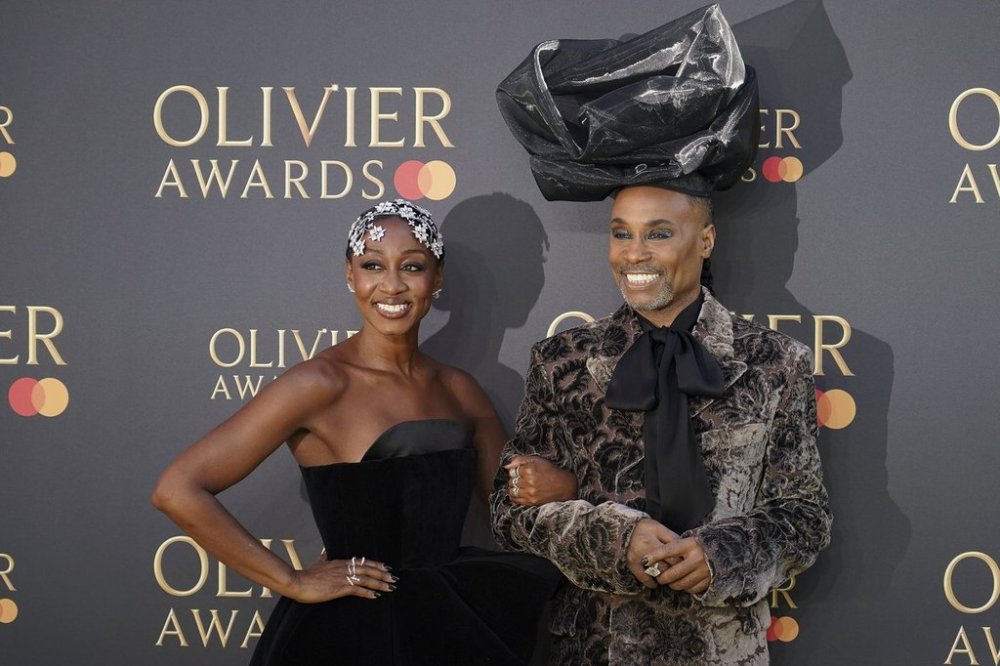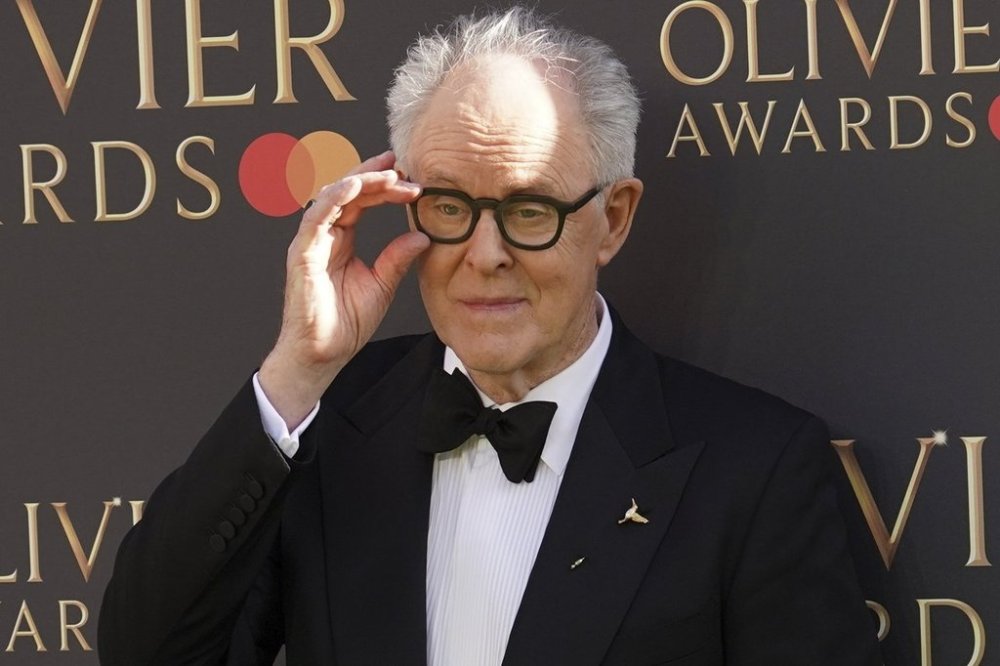John Lithgow wins best actor at the UK stage Olivier Awards for exploring Roald Dahl’s dark side
Advertisement
Read this article for free:
or
Already have an account? Log in here »
We need your support!
Local journalism needs your support!
As we navigate through unprecedented times, our journalists are working harder than ever to bring you the latest local updates to keep you safe and informed.
Now, more than ever, we need your support.
Starting at $15.99 plus taxes every four weeks you can access your Brandon Sun online and full access to all content as it appears on our website.
Subscribe Nowor call circulation directly at (204) 727-0527.
Your pledge helps to ensure we provide the news that matters most to your community!
To continue reading, please subscribe:
Add Brandon Sun access to your Free Press subscription for only an additional
$1 for the first 4 weeks*
*Your next subscription payment will increase by $1.00 and you will be charged $20.00 plus GST for four weeks. After four weeks, your payment will increase to $24.00 plus GST every four weeks.
Read unlimited articles for free today:
or
Already have an account? Log in here »
Hey there, time traveller!
This article was published 06/04/2025 (193 days ago), so information in it may no longer be current.
LONDON (AP) — American actor John Lithgow won the best actor trophy at the London stage Olivier Awards on Sunday for exploring the dark side of children’s writer Roald Dahl in “Giant.”
Backwards-biographical story “The Curious Case of Benjamin Button” was named best new musical at the awards, Britain’s equivalent of Broadway’s Tony Awards.
“Conclave” star Lithgow added the Olivier to an awards shelf that already includes multiple Tony, Emmy and Golden Globe trophies, for depicting the author of “Charlie and the Chocolate Factory” in Mark Rosenblatt’s play, which confronts Dahl’s antisemitic views.

“I think I’m going to faint,” said an emotional Lithgow, 79. He said he wanted to assure Britons that the transatlantic “special relationship is still firmly intact.”
“It’s not always easy to welcome an American into your midst, and at this particular moment, it’s probably a little more complicated than usual,” he said.
Lesley Manville, whose resume includes a stint as Princess Margaret in “The Crown,” took the best actress prize for her performance as shocked royal spouse Jocasta in “Oedipus.” Director Robert Icke’s modern-day reimagining of the ancient Greek tragedy — which opens on Broadway later this year — was named best revival of a play.
Imelda Staunton – Queen Elizabeth II in two final seasons of “The Crown” – won the fifth Olivier of her career, best actress in a musical, for “Hello, Dolly!” Best actor in a musical went to John Dagleish as the titular man who ages in reverse in “Benjamin Button.” The musical is based on a story by F. Scott Fitzgerald that also inspired a 2008 movie starring Brad Pitt.
The Oliviers were handed out in a ceremony at London’s Royal Albert Hall hosted by Broadway, TV and runway star Billy Porter and British soul singer Beverley Knight.
Stars in the audience included recent Academy Award winner Adrien Brody – a best-actor Olivier nominee for death-row stage drama “The Fear of 13” – and Cate Blanchett, recently seen on the London stage in “The Seagull.”
“Giant” won three prizes including best new play. “Benjamin Button” also won three, as did a boisterous outdoor production of “Fiddler on the Roof” at Regent’s Park Open Air Theatre, which was named best musical revival.

Maimuna Memon was named best supporting actress in a musical for Tolstoy-inspired “Natasha, Pierre & the Great Comet of 1812.” Layton Williams took the equivalent supporting actor prize for campy Celine Dion celebration “Titanique.”
For plays, supporting performer prizes went to Elliot Levey for “Giant” and Romola Garai for “The Years.” Norwegian director Eline Arbo was named best director for “The Years,” an adaptation of Nobel Literature laureate Annie Ernaux’s autobiographical book.
The prizes, which recognize achievements in theater, opera and dance, were founded in 1976 and named for the late actor-director Laurence Olivier. Winners are chosen by voting groups of stage professionals and theatergoers.
